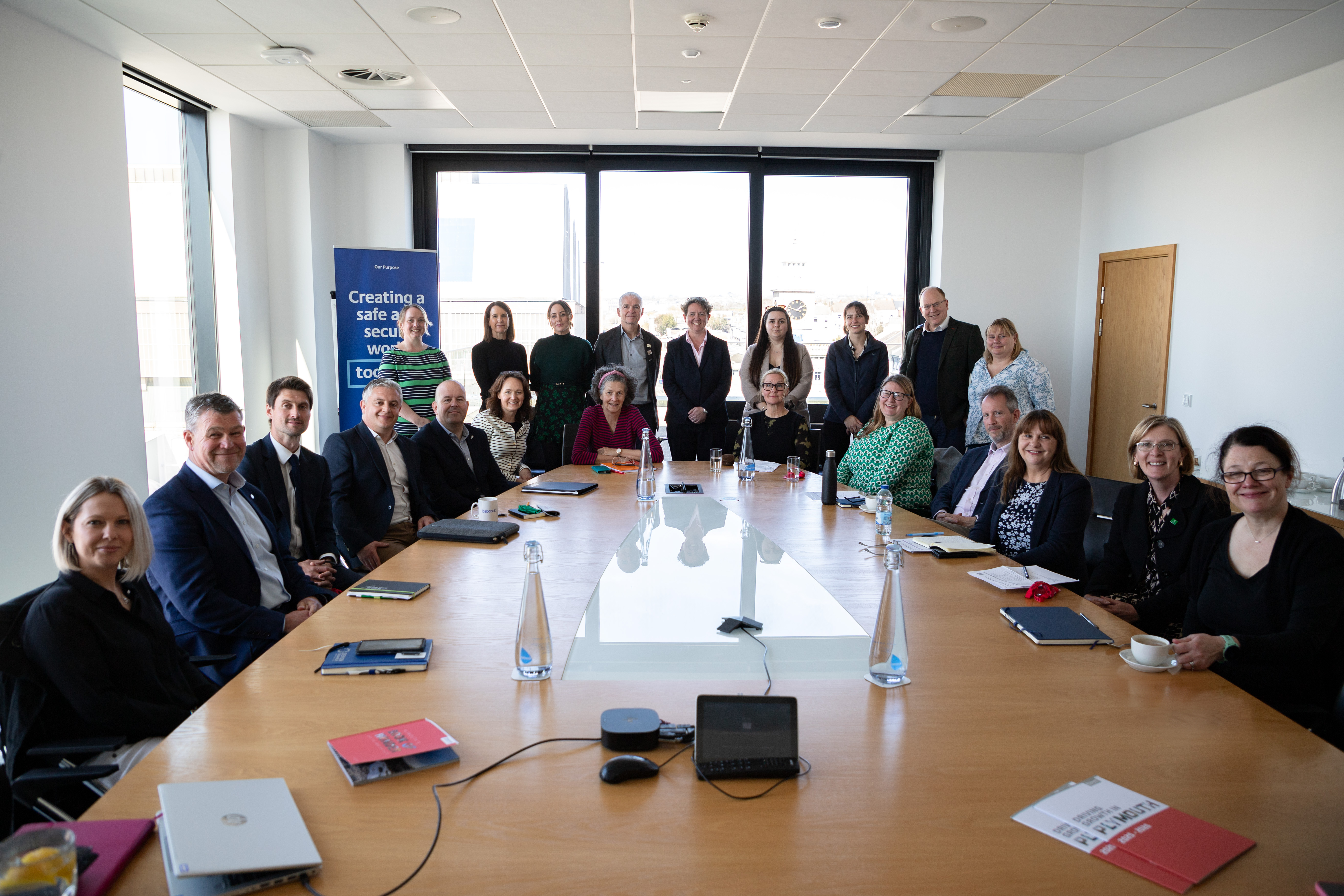Discussions to tackle the skills shortages in Plymouth have taken place at a roundtable meeting, hosted by John Gane, Managing Director for Babcock’s Devonport site and attended by key city education providers and employers.
The meeting held in Babcock’s Henley building at Devonport Royal Dockyard was attended by 22 people to better understand the risks and opportunities around skills and to scope potential solutions ready to support the mapped future growth of the city.
The Ministry of Defence is investing an additional £4.4bn over the next 10 years in HMNB Devonport and Babcock’s Devonport Royal Dockyard in support of critical Nuclear submarine programmes, as well as the ongoing work to support surface ships and land operations. With a pipeline of work visible out to 2070 there is a requirement to secure investment for Plymouth to unlock the city’s growth potential, regeneration and revival for the long-term.
The Growth Alliance Plymouth (GAP) partnership between Babcock, The Royal Navy and City Council was established last year to address the large emerging skills gap in the city. GAP aims to achieve this through collaboration and partnership of higher and further education training providers, whilst also maximising the potential of the local population through schemes to support those currently unemployed back into work.
Yesterday’s meeting focussed on addressing key areas such as better connection between courses on offer and placements & internships within local city businesses. The group also discussed a new piece of research currently being commissioned by Growth Alliance Plymouth to identify the skills gap in the city, specifically around marine engineering, construction and marine autonomy.
Collette McMullen, Babcock Skills Director who chaired this inaugural session said:
“Babcock is the largest employer in the South West, outside of the military, supporting 21,500 jobs in the region. We are serious about the future of Plymouth and are spearheading skills development in the region, working closely with partners to break down barriers to entry and underpin pre apprenticeship/ apprenticeships and graduate programmes to support the future growth of the city.”
The skills roundtable follows an announcement last week around the proposed project to refurbish an area of Plymouth Civic Centre to create a central based City College campus, subject to approval by Homes England. The Council and College are progressing design proposals, including workshop space in the basement, teaching space on the ground and first floors of the north and south block and public-facing spaces.
Jackie Grubb, Chief Executive of City College Plymouth said:
“This new campus provides a fantastic opportunity to ensure Plymouth’s residents are equipped with the skills needed to support the growth of the defence, marine and other sectors of the economy. Almost half of the courses will be linked to the ‘blue and green’ economy – marine, nuclear and net zero, equipping students with the skills to work in sectors such as offshore wind, sustainable construction and environmental science.”
In 2024, City College Plymouth also launched its groundbreaking Engineering & Nuclear Skills building, developed in partnership with Babcock International Group and the National College for Nuclear as a solution to providing the skills necessary to support the city’s future.
Speaking on the importance of collaboration between skills providers and employers in the city, Kawasaki Precision Machinery’s UK MD and Chair of the Plymouth Manufacturing Group, Lee Crocker said:
“The investment in Plymouth’s defence sector brings a huge investment opportunity to the city but also risk for the existing, well established, manufacturing and Engineering sector. Its therefore crucial that the strategic leaders of the city work in collaboration to ensure the employment and skills requirements of the city are met for the Engineering and manufacturing sector as a whole.”
Growth Alliance Plymouth will continue to work alongside city partners and businesses to address the skills gap in the city to not only support the nation’s Continuous at Sea Deterrent (CASD) and city-wide economic growth, but to promote education, particularly in deprived areas. The programme aims to increase school attendance rates and inclusion, encouraging learning within the STEM subjects and increase the number of local pupils continuing into higher education.
